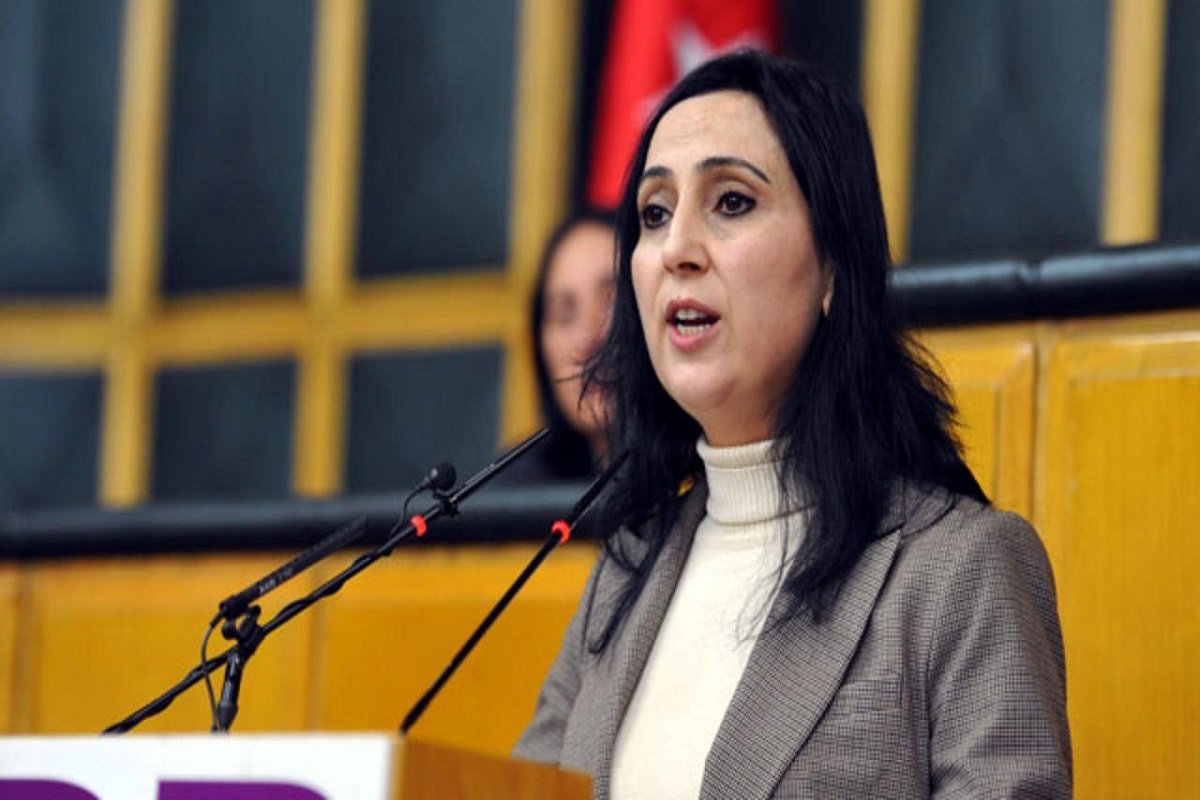“After almost two years of isolation [in prison], one of the first things I will do is go among people,” said Figen Yüksekdağ, the imprisoned former co-chair of Turkey’s pro-Kurdish Peoples’ Democratic Party (HDP), in an interview with Vanity Fair Italy.
The HDP is the second-largest opposition party in the Turkish Parliament. The Turkish government’s crackdown on the Kurdish political movement began in November 2016 with the arrest of high-profile politicians including the party’s then co-chairs, Yüksekdağ and Selahattin Demirtaş.
Stating that there have always been nationalist and religious threads in Turkey, Yüksekdağ said: “But now they have come together in a dangerous alliance and found new legitimacy among the people. If nobody tries to stop them, this time it will have dire consequences.”
“We witness that the status of women is worsening day by day in Turkey. The most fundamental rights have already been violated. The 2016 coup and the state of emergency have negatively affected the activities of hundreds of associations that helped victims of physical and psychological violence. Kurdish women in particular have paid a great price. Right now we have nine deputies, 35 mayors and thousands of members in prison,” she said.
Saying that the June 24 elections pose a great test for Turkish democracy, Yüksekdağ stated that Turkey had never fully democratised and it might also lose fundamental rights after the elections.
“Turkish society is under a severe nationalist, fundamentalist and regressive siege, and this pressure has paralyzed the dynamics for societal renewal,” Yüksekdağ said. “The reason Erdoğan attacks so much is obvious, the outcome of the elections poses a risk for him. The elections ‘risk’ is changing the country radically. The campaign is under censorship. the HDP has no access to media because almost all media is controlled by Ankara. … Any majority they achieve in these elections will strengthen the rule of oppression and dictatorship under the guise of majoritarianism”
In response to a question, Yüksekdağ said: “If the difficult part happens and I do leave this place, I guess I will have to go right back to work because there will be so many things piling up and so many people waiting for me to handle them. Not to sound like I’m complaining, that would be a good and happy reunion for me. After the isolation in prison, one of the first things I will do is to go into crowds of people.”
The Turkish government’s crackdown on the Kurdish political movement began in late 2016 which led to the detention of at least 5,000 members of the HDP, including 80 mayors. Trustees have been appointed to dozens of municipalities in the country’s predominantly Kurdish Southeast. There are currently 9 HDP deputies behind bars. The developments have attracted widespread criticism from the region and Western countries.
Turkish authorities had conducted direct talks with Abdullah Öcalan, jailed leader of the outlawed Kurdistan Workers’ Party (PKK) for several years until a truce in effect collapsed in the summer of 2015. Since then, there have been heavy clashes between the PKK and Turkish security forces.
More than 40,000 people, including 5,500 security force members, have been killed in four decades of fighting between the Turkish state and the PKK, which is listed as a terrorist organization by Turkey, the US and the EU.
Over 1,200 Turkish security personnel and civilians, including a number of women and children, have been killed since July 2015 alone, when the Turkish government and the PKK resumed their armed struggle.















